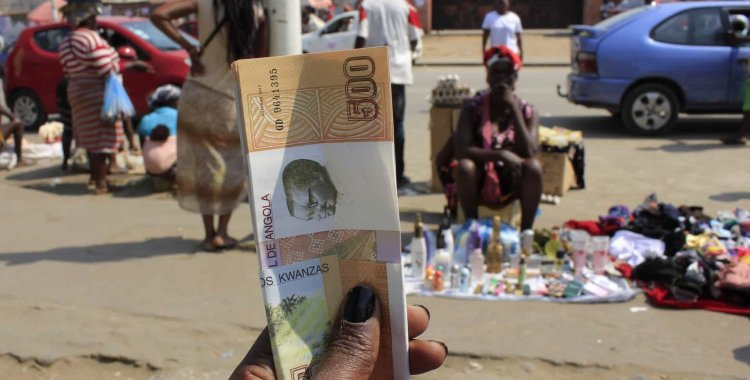According to a UNECA report on the impact of the new coronavirus on economic activity in central African countries, Angola could face a 10.9 percent recession in economic activity, resulting from a 20 percent drop in oil revenues, assuming an average oil price of 30 dollars during the year, plus a reduction in tourism and non-oil activities.
"The situation in Central Africa is even worse than in the rest of the continent because unfortunately the perception of economic developments, as well as the oil price war, to which must be added a fall in the price of oil from 60 dollars to 30 dollars per barrel, is happening in an environment where several African countries are already under the support of the IMF," said the director of the UNECA department for Central Africa, António Pedro.
"Our member states will not have the money they need to react to the pandemic, as they face a double danger: on the one hand they are attacked by the virus and the slowdown in economic growth, and then they do not have the money to respond to a worsening pandemic situation," he added.
The report "shows the estimated impacts on the countries of Central Africa as a percentage of GDP in an oil scenario of 30 dollars", confirmed the responsible for this region who, in the UN division, includes Angola, Burundi, Cameroon, Central African Republic, Chad, Democratic Republic of Congo, Equatorial Guinea, Gabon, Rwanda and Sao Tome and Principe.
The UNECA warns in a report on the impact of Covid-19 on Africa that the 3.2 percent economic growth forecast for the continent this year could fall to 1.8 percent due to the expected slowdown in demand from the main importing countries for raw materials and the reduction in oil prices.
"Of the thousands of known cases, around 350 are in Africa, but the economic impact is disproportionate," reads an analysis note released by the UNECA in Addis Ababa, in which it warns that "the new coronavirus could cause expected growth to fall from 3.2 percent to 1.8 percent".
In presenting the report on the impact of the pandemic on the African continent, UNECA Executive Secretary Vera Swonge said that the fact that China is being severely affected would inevitably impact trade in Africa as well.
"Africa could lose half of its GDP growth due to a number of reasons, including disruptions in the global supply chain," she said, noting that the continent is strongly linked to Europe, China and the United States.
The continent, she added, will need more than 10 billion dollars in increases in health spending to contain the spread of the virus and, on the other hand, to make up for the drop in revenue that could lead to an unsustainable debt situation.
In the report, it is explained that "assuming an export of barrels of oil this year identical in volume to the average between 2016 and 2018, with the average price of 35 dollars, the Covid-19 can make exploration revenues fall to 101 billion dollars this year," which represents a drop of 65 billion dollars.
Among the recommendations made by the UNECA, the experts stress that "African governments should review their budgets to give priority to measures that can mitigate the expected negative effects of Covid-19 on their economies".
The organization also considers that governments should "provide incentives to food importers to quickly purchase sufficient quantities that can be stored, finance impact preparedness, prevention and curative measures, including the logistics part".
In addition, experts say African governments should "take advantage of the crisis to improve health systems, prepare fiscal stimulus packages such as guaranteeing wages to those unable to work due to the crisis, and encourage consumption and investment and maintain investments in infrastructure to protect jobs".
Maintaining the commitment to the African Free Trade Agreement to "build long-term continental resilience and volatility management", for example by focusing on intra-regional pharmaceutical and basic food trade are other recommendations of UNECA experts.
The barrel of oil dropped on Monday and closed the session below 30 dollars, the lowest since 2004.







